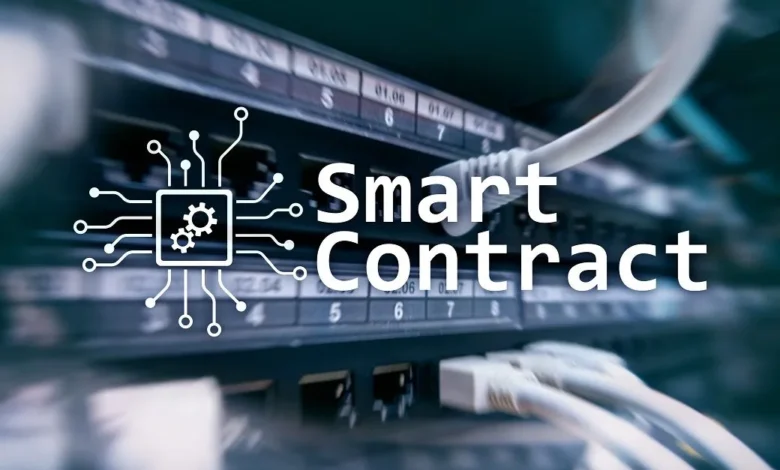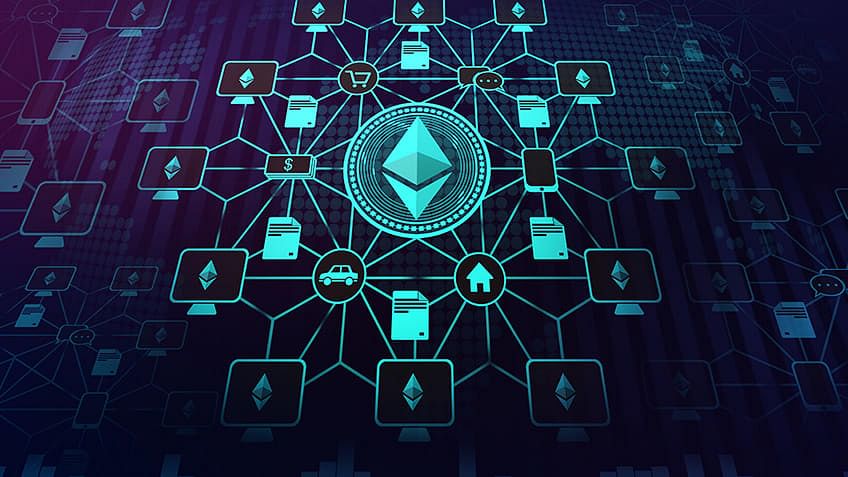A Complete Guide to Smart Contracts: Revolutionizing the Future of Transactions in 2025

Smart contracts have emerged as one of the most transformative innovations in blockchain technology. These self-executing contracts with the terms of the agreement directly written into code are reshaping the way transactions are conducted in various industries. As blockchain adoption continues to grow, smart contracts are poised to redefine sectors such as finance, real estate, insurance, and more. In this comprehensive guide, we’ll explain what smart contracts are, how they work, their benefits, and their potential applications in the future.
What are Smart Contracts?
Smart contracts are digital agreements stored on a blockchain that automatically execute and enforce the terms of the contract when predefined conditions are met. They eliminate the need for intermediaries, such as lawyers or notaries, reducing costs and increasing efficiency.
- The Basics of Smart Contracts
A smart contract is a program or script that lives on a blockchain. The contract’s code contains the logic necessary to execute the contract once certain conditions are met, and once executed, the contract cannot be altered. - The Role of Blockchain in Smart Contracts
Blockchain technology plays a crucial role in the execution of smart contracts. It ensures transparency, immutability, and security, making it impossible to tamper with the contract once it has been deployed on the blockchain.
How Do Smart Contracts Work?
Smart contracts function similarly to traditional contracts but with the added benefit of automation and security. Here’s a step-by-step overview of how they work:
- Define the Terms
The parties involved in the contract define the terms and conditions, just like in a traditional agreement. However, these terms are written in the form of code on the blockchain. - Deploy the Contract
After writing the code, the contract is deployed to a blockchain, where it becomes visible and immutable. This ensures that all parties involved can verify the contract’s terms. - Triggering Events
The contract automatically executes when the specified conditions are met. For example, if a payment is made, the contract might trigger the transfer of ownership of an asset or release funds from an escrow account. - Execution and Finalization
Once the conditions are met and the contract is executed, the transaction is recorded on the blockchain, providing a permanent, transparent, and immutable record of the contract.

Benefits of Smart Contracts
Smart contracts offer several advantages over traditional methods of conducting transactions and agreements:
- Automation and Efficiency
Smart contracts are self-executing, meaning they automatically carry out tasks once conditions are met. This reduces the need for manual intervention, saving time and eliminating human error. - Cost Reduction
By eliminating intermediaries, such as lawyers or banks, smart contracts significantly reduce transaction costs. This makes them an attractive option for businesses looking to streamline their operations. - Security and Transparency
The use of blockchain technology ensures that smart contracts are secure and transparent. Once deployed, the contract cannot be altered, and all parties involved can verify the contract’s terms. - Increased Trust
Since smart contracts are transparent, parties can trust that the contract will be executed as agreed upon without the need for a third party. The blockchain’s immutability adds a layer of trust, reducing the likelihood of fraud.
Applications of Smart Contracts
Smart contracts have a wide range of applications across various industries. Here are some key areas where they are already making an impact:
- Finance and Banking
In the financial sector, smart contracts can streamline processes such as loan approvals, insurance claims, and asset transfers. They also enable the creation of decentralized finance (DeFi) platforms, where users can engage in lending, borrowing, and trading without relying on traditional banks. - Real Estate
Smart contracts are revolutionizing real estate transactions by simplifying property transfers, reducing paperwork, and automating escrow services. These contracts ensure that the transfer of ownership occurs only when both parties have met the required conditions, such as payment completion. - Supply Chain Management
In supply chain management, smart contracts can help track goods as they move through various stages of production, shipping, and delivery. This transparency helps reduce fraud, improve efficiency, and ensure timely deliveries. - Insurance
Smart contracts can automate insurance claims, reducing the time it takes for claims to be processed and paid out. By setting predefined conditions for coverage, claims can be processed without the need for human intervention, saving time and reducing costs for both parties.
Risks and Challenges of Smart Contracts
Despite their many benefits, smart contracts also face challenges and limitations:
- Coding Errors
Smart contracts are only as good as the code that powers them. A bug or error in the code could lead to unintended consequences, such as the failure to execute or the execution of incorrect terms. - Legal Recognition
While smart contracts are enforceable in some jurisdictions, legal recognition remains an issue. Many legal systems still require traditional contracts to be validated through human oversight, which could limit the widespread adoption of smart contracts. - Scalability Issues
Blockchain networks can struggle with scalability when executing complex smart contracts, leading to slower transaction times and higher fees. - Security Vulnerabilities
Although blockchain technology is secure, vulnerabilities in smart contract code or the blockchain network itself can be exploited by malicious actors. It’s essential to ensure that smart contracts are thoroughly tested before deployment.
Also Read: A Complete Guide to Ethereum Staking: Unlocking Passive Income in 2025

The Future of Smart Contracts
As blockchain technology continues to mature, the future of smart contracts looks bright. They have the potential to disrupt many industries by offering more efficient, secure, and cost-effective alternatives to traditional agreements. Furthermore, with the rise of decentralized applications (dApps) and blockchain-based platforms, smart contracts are likely to become an integral part of the digital economy in 2025 and beyond.
Conclusion: Are Smart Contracts the Future of Transactions?
Smart contracts are undoubtedly revolutionizing the way we conduct business and execute agreements. With their ability to automate processes, reduce costs, and enhance transparency, they are poised to transform various industries, from finance to real estate. While challenges like coding errors and legal recognition remain, the continued development of blockchain technology and smart contract platforms will likely overcome these hurdles, making smart contracts a key component of the future digital economy.




One Comment